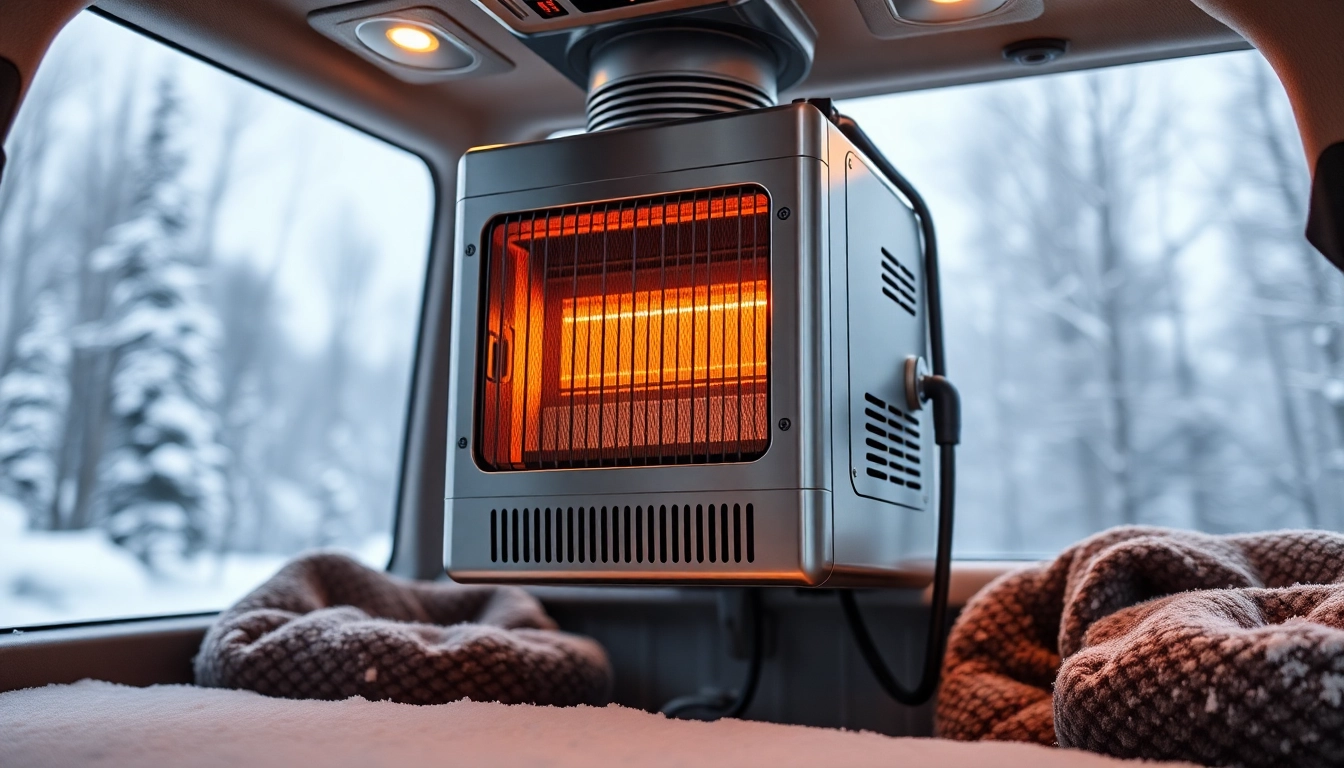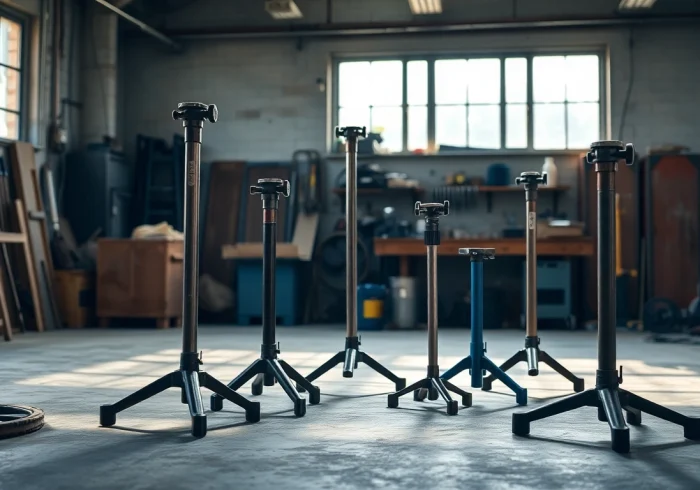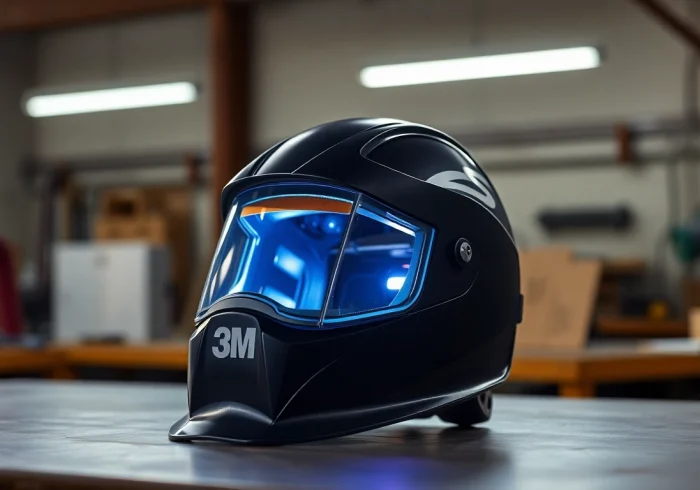Understanding Diesel Fuel Heaters
What is a Diesel Fuel Heater?
A diesel fuel heater is a device designed to warm diesel fuel before it enters an engine, helping to ensure optimal fuel viscosity and combustion, especially in cold weather conditions. These heaters are essential for preventing issues such as fuel gelling and wax build-up, which can lead to engine performance problems and difficulties during start-up. In essence, when temperatures drop, the viscosity of diesel fuel increases, making it less fluid and more prone to clogging filters. As such, a reliable diesel fuel heater is crucial for maintaining continuity in the operation of diesel engines in various applications, from trucks and machinery to home heating systems.
How Diesel Fuel Heaters Work
Diesel fuel heaters function through various mechanisms depending on their design, with the most common type being electric heaters that warm fuel before it reaches the engine. Electric heaters usually operate by passing current through a resistance element that generates heat. In contrast, some advanced models utilize coolant heat from the engine’s cooling system to warm the fuel as it circulates. The heated fuel then flows more freely, aiding in smoother engine operation and reducing the likelihood of issues initiating combustion.
Benefits of Using Diesel Fuel Heaters
- Improved Engine Performance: By ensuring that diesel fuel remains at an optimal temperature, heaters help engines operate more efficiently and effectively.
- Prevention of Fuel Gelling: During cold weather, unheated fuel can gel, clogging filters and leading to engine failure. Diesel fuel heaters counteract this problem, ensuring that vehicles start and operate smoothly.
- Reduced Emissions: Efficient combustion resulting from properly heated fuel helps in minimizing harmful emissions, making your vehicle more environmentally friendly.
- Convenience: With a diesel heater, you can have peace of mind knowing your vehicle or heating system will perform reliably in cold temperatures.
Types of Diesel Fuel Heaters
Electric Diesel Fuel Heaters
Electric diesel fuel heaters are popular for their ease of installation and effectiveness in warming fuel quickly. Typically mounted to the fuel line, these devices work by heating the fuel directly as it passes through. They are ideal for various applications, including vehicles and machinery that require reliable performance in frostbite conditions. Electric heaters often come with thermostats that automatically activate when temperatures fall below a predetermined level, ensuring fuel is warmed without manual intervention.
In-Line Diesel Fuel Heaters
In-line diesel fuel heaters are integrated directly into the fuel delivery system. These heaters are designed to warm the fuel while it’s on its way to the engine, which means they can operate continuously while the engine is running. Not only do they prevent gelling, but they also maintain an optimal temperature for fuel injection. In-line systems are suitable for heavy-duty applications, especially in industries that rely on diesel-powered machinery. Their capability to thaw frozen fuel quickly is a distinct advantage in very cold environments.
Portable Diesel Fuel Heaters
For users who require flexibility, portable diesel fuel heaters offer a convenient solution. These units can be moved between different equipment or locations, making them perfect for construction sites, farms, or recreational vehicles. Because they are easily transportable, they can be employed to pre-heat diesel fuel in a variety of environments, ensuring reliable performance regardless of location. Some models are equipped with wheels or handles for easy mobility, while others may have a compact design suitable for confined spaces.
Choosing the Right Diesel Fuel Heater for Your Needs
Factors to Consider When Sourcing
Selecting the right diesel fuel heater requires careful consideration of several factors:
- Capacity: Ensure the heater can handle the volume of fuel that needs to be warmed. Smaller heaters might suffice for personal vehicles, while larger units are necessary for heavy machinery or transportation fleets.
- BTU Rating: The British Thermal Units (BTUs) rating indicates the amount of heat the heater can produce. Higher ratings suggest faster heating capabilities, which is particularly important in extreme cold.
- Type of Fuel: Confirm that the heater is compatible with your type of diesel fuel, whether regular diesel, biodiesel, or any other blends.
- Environmental Conditions: Consider where the heater will be used. Will it be exposed to outdoor elements? Is it essential for it to be portable? Answering these questions will guide your selection.
Comparing Brands and Features
When evaluating different brands of diesel fuel heaters, it’s vital to look at various features that each model offers:
- Durability: Assess the materials used in construction. Heaters made from robust, heat-resistant materials tend to last longer and perform better under stress.
- Maintenance Requirements: Some heaters are easier to maintain than others. Look for models that offer straightforward maintenance without the need for specialized tools or skills.
- Warranty: A good warranty can provide peace of mind. Check which features are covered and for how long.
Common Installation Points
Installation of diesel fuel heaters typically occurs at critical points in the fuel delivery system. Common locations include:
- Just before the fuel pump to ensure fuel reaches the engine at an optimal temperature.
- On the fuel return line to maintain temperature during idle or low-load conditions.
- Near the fuel filter, which helps in keeping the filter from getting clogged with gelled fuel.
Safety and Maintenance Tips for Diesel Fuel Heaters
Essential Safety Features
Safety is a paramount consideration when using diesel fuel heaters. Modern diesel heaters come equipped with several safety features, including:
- Automatic Shut-off: Heaters that come with automatic shut-off mechanisms help prevent overheating and potential fire hazards.
- Thermal Cutoffs: This feature disconnects the heater when temperatures exceed manufacturer specifications, providing an additional layer of safety.
- Sealed Connections: Ensure that all electrical connections are properly sealed to avoid any fuel ignition risks.
Regular Maintenance Practices
To ensure the longevity and efficiency of your diesel fuel heater, follow these maintenance tips:
- Routine Inspections: Regularly check for visual signs of wear or damage to the heater and hoses.
- Clean Filters: Periodically clean or replace filters to ensure smooth operation and prevent clogs.
- Check Electrical Connections: Regularly inspect electrical connections to verify they are secure and free from corrosion.
Signs Your Diesel Fuel Heater Needs Attention
Awareness of the signs that indicate a potential problem with your diesel fuel heater is essential:
- Frequent Overheating: If the heater frequently overheats, it may indicate a malfunctioning sensor or thermostat.
- Unusual Noises: Any loud or unusual sounds coming from the heater can indicate mechanical issues.
- Inconsistent Performance: If the heater fails to maintain the desired fuel temperature or takes longer than usual to heat, it may need professional servicing.
Frequently Asked Questions about Diesel Fuel Heaters
Are Diesel Fuel Heaters Safe for Indoor Use?
Yes, many diesel heaters are designed to be safe for indoor use. These models generally come with advanced safety features that prevent the buildup of toxic fumes. However, it is crucial to always verify the manufacturer’s guidelines and ensure proper ventilation to maintain air quality.
Can I Use Diesel Fuel Heaters for My Home?
Absolutely. Diesel fuel heaters can be used for home heating systems. Since diesel fuel and home heating oil are similar, using the appropriate heater can produce effective warmth and comfort in residential settings.
How Long Can I Run My Diesel Fuel Heater?
The duration for which you can run your diesel fuel heater largely depends on the model and manufacturer’s guidelines. Generally, many heaters are designed for continuous operation, while others may have recommended running times. Always consult the user manual for specifics on your unit.



